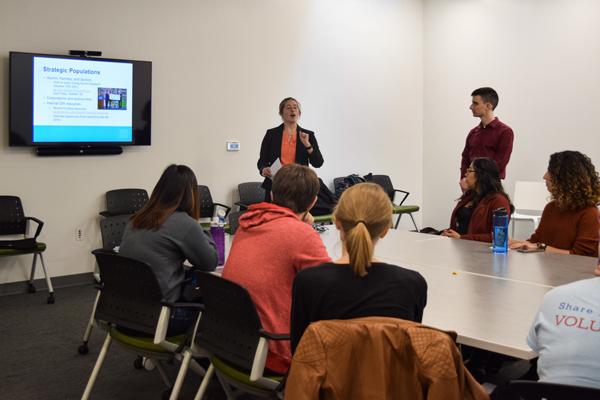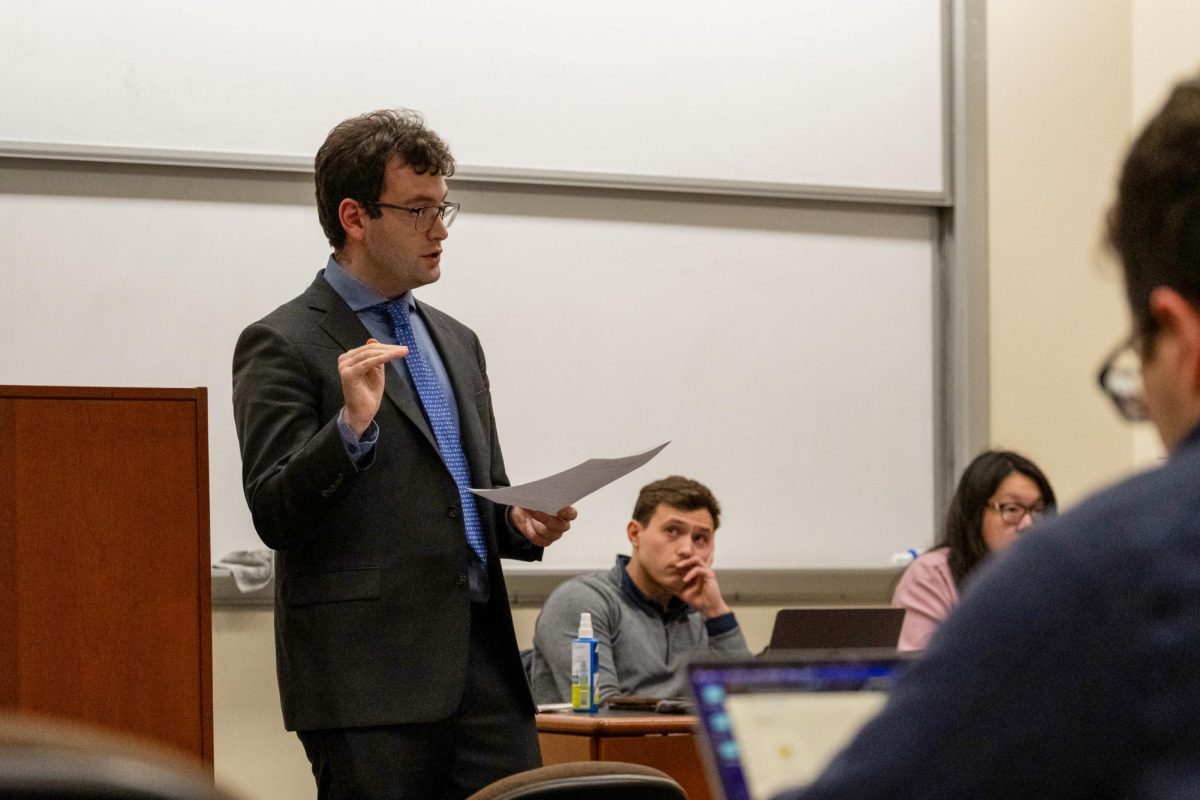The Center for Student Engagement is requiring student organizations to send a representative to three leadership seminars this year, instead of the usual one.
In previous years, the CSE hosted a day-long, conference-style student organization leadership training in the beginning of the semester for group presidents and treasurers. The CSE changed the requirement this year to allow any group member to attend three sessions between October and March, and officials said they adjusted the design to accommodate students’ busy schedules and to help them learn skills throughout the semester.
The seminars are designed to prepare students for leadership positions both on and off campus with topics like self-knowledge, interpersonal communication, team-building, strategic planning, financial stewardship and civic responsibility, according to the website. Any valid member of a student organization can attend the trainings as a representative, according to an email sent out by the CSE to all student organizations.
University spokeswoman Kurie Fitzgerald said the change in leadership training requirements is based partially on feedback from attendants of last year’s sessions that showed students wanted a wider range of date and time options.
A continuous series of training sessions gives a greater number of students a chance to participate, accommodates a wider range of schedules and enables student organization members to attend the sessions that best suit their organizations’ needs, Fitzgerald said.
“Each week, there are four to six different sessions presented by CSE staff as well as campus partners, including the Multicultural Student Services Center and the Center for Career Services,” Fitzgerald said. “We have assessed each of the sessions offered so far and the response from students has been largely positive.”
Possible sessions include event planning, financial planning and officer transitions, according to the CSE website.
Fitzgerald added that the changes should allow student organization members to attend the session times that best suit their individual and organizational needs.
Other universities’ officials said GW’s move to create more options for the leadership seminar requirements was a step in the right direction to make the trainings more flexible for students juggling multiple responsibilities.
Joseph Lattal, the assistant director of student organizations and activities at Northwestern University, said the new system of spreading out leadership trainings to multiple days caters to student leaders with busy schedules.
Northwestern University’s leadership training requires two members of a student organization to attend one training session from several time slots. The sessions focus on skills like financial compliance, fundraising and inclusive membership strategies, Lattal added in an email.
“With the amount of time students dedicate to classwork, jobs, organizational involvement and other activities, it is valuable for institutions to make leadership training as time-efficient as possible,” Lattal said.







